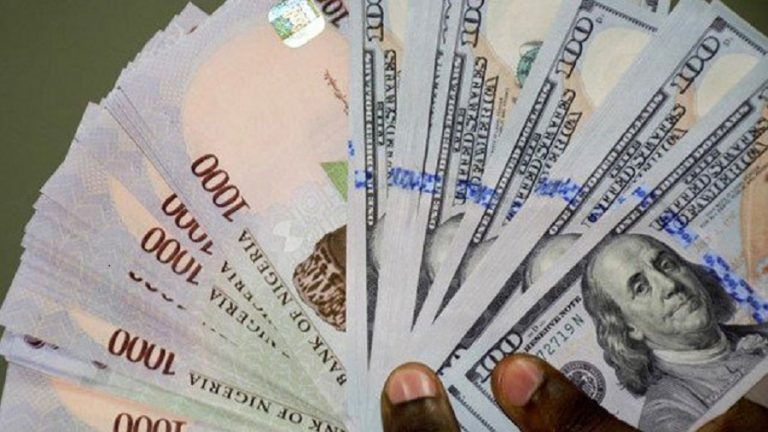The official foreign exchange market witnessed a substantial rise in dollar supply, soaring by 180.59 percent to $440.13 million on Friday.
The naira concluded the week at N1435.53/$ after a week marked by fluctuations, indicating a positive response to the Central Bank of Nigeria’s (CBN) efforts to stabilize the foreign exchange rate.
Data from FMDQ Security Exchange reveals that forex turnover experienced a notable surge, climbing from $156.86 million on Thursday to $440.13 million on Friday. The improved liquidity extends beyond commercial banks, with the CBN, oil firms, and multinationals also participating in the Nigerian Autonomous Foreign Exchange Market (NAFEM).
Before settling at N1435.53/$ on Friday, the naira experienced intraday highs and lows at N1526/$ and N838.96/$, respectively. Meanwhile, the parallel market saw the naira closing at N1,420/$ on Friday, with a consistent demand for the greenback.
Last week, the CBN introduced new circulars and guidelines aimed at bolstering liquidity and narrowing the gap between parallel and official forex rates. A key directive titled “Harmonisation of Reporting Requirements on Foreign Currency Exposures of Banks” expressed concern over banks holding substantial foreign currency positions, citing associated risks.
The CBN mandated that banks’ Net Open Position (NOP) should not exceed 20 percent short or 0 percent long of the bank’s shareholders’ funds going forward. This directive, with a deadline of February 1, 2024, is anticipated to prompt banks to sell approximately $5 billion, according to industry insiders.
An anonymous top bank executive stated, “The CBN is saying that you cannot hold excess dollar liquidity anymore. Any foreign exchange you are holding must be committed to something, a transaction, or an obligation you can prove.” The move aims to inject liquidity into the market, stabilize the exchange rate, and attract foreign investors.
Additionally, S&P Global Ratings affirmed its long- and short-term foreign and local currency sovereign credit ratings on Nigeria at ‘B-/B’. The stable outlook is based on the government’s commitment to ongoing reforms, which, if executed, are expected to support growth and fiscal outcomes.
The global rating firm predicts that addressing costlier imports and settling FX arrears will play a role in limiting the rise in Nigeria’s FX reserves.



